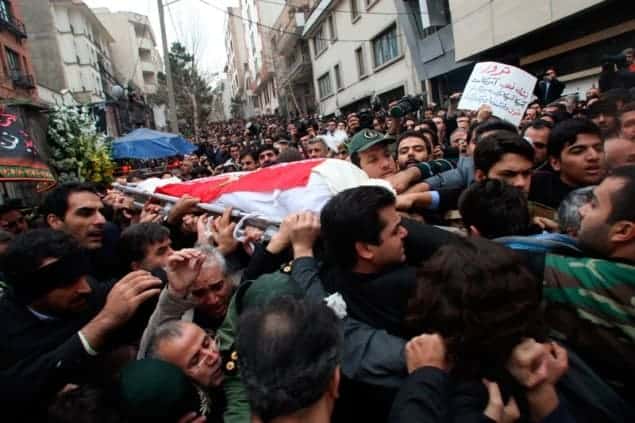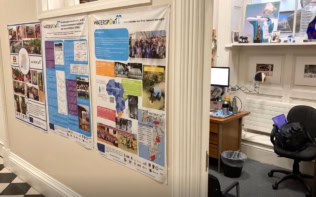
“We are living in an atmosphere of fear,” says Reza Mansouri, a cosmologist at Sharif University in Tehran, referring to academic life in the Iranian capital in the wake of the assassination of a fellow physicist last Tuesday.
Masoud Alimohammadi, a 50-year-old physics professor at Tehran University, was killed by a remote-controlled bomb attached to the side of a motorcycle. The bomb was detonated as he left his house for work last Tuesday morning.
Reports by the Iranian state media have blamed the US and Israel for the attack, a claim that the US has since described as “absurd”.
Examination of Alimohammadi’s publication record reveals that he was not an applied nuclear physicist as the Iranian state media had claimed, but a mathematical physicist working in quantum mechanics and field theory. He had published more than 50 papers and had recently specialized in theories of dark energy. His last paper was entitled “Remarks on generalized Gauss-Bonnet dark energy”, which appeared in Physical Review D last March (Phys. Rev. D 79 063006).
“None of his work has anything remotely to do with nuclear weapons so I wonder why they are calling him a nuclear scientist and suggesting that the US or Israel may have bumped him off,” says Subir Sarkar, a theoretical physicist at the University of Oxford in the UK.
Not a political figure
Alimohammadi was one of the first four physicists to complete his doctorate in its entirety within Iran, as the nation did not run PhD programmes before the Islamic Revolution of 1979. He did his PhD at Sharif University of Technology, having been offered a place by Mansouri. “Alimohammadi was a practising Muslim and was engaged in activities linked to the [Iranian] cultural revolution,” recalls Mansouri.
The rhetoric of the authorities in relation to the West is getting more hard-line and I am certainly very concerned for independently minded academics Najib Ghadbian, University of Arkansas
Although Mansouri adds that Alimohammadi was not a political figure, other reports – including the BBC’s – say that his name was among 420 academics who signed a letter in support of the opposition at the presidential elections last June.
University campuses have become increasingly politicized since the June elections, which sparked Iran’s worst unrest since the cultural revolution – the period in the 1980s that followed the Islamic Revolution. Reuters news agency reported that riot police surrounded Tehran University, where Alimohamadi worked, on 8 December when a large state rally was being held there to try to prevent opposition protests.
Najib Ghadbian, a political scientist at the University of Arkansas and author of Democratization and the Islamist Challenge in the Arab World, describes the overall situation in Iran as “very tense”, since the elections. “The rhetoric of the authorities in relation to the West is getting more hard-line and I am certainly very concerned for independently minded academics,” he says.
Nuclear tensions
Meanwhile, this weekend diplomats from six nations, including the US and the UK, met to discuss further possible UN sanctions on Iran’s nuclear ambitions. Ghadbian believes that meetings like this one are serving only to strengthen the anti-Western rhetoric of the Ahmadinejad regime, making the situation even more perilous for academics in Iran.
“What politicians in the West fail to understand is that support for a nuclear programme is widespread in Iran, even among those who do not support the presiding regime,” he says.
The current picture of Iran stands in stark contrast to the country experienced by João Magueijo, a cosmologist at Imperial College, London, who spent time in working in Iran in 1999. “I was very impressed by the universities and their huge campuses, and had a lot of fun with the students there,” he says.
“Above all in academia I found complete integration between seriously religious people and effective atheists. They exchanged jokes about each other’s options in the light tone only possible under real tolerance (and obviously in contrast with the law).”
The funeral of Masoud Alimohammadi took place in Tehran last Thursday and The Times reported that hundreds of government loyalists surrounded the body as it was carried from the physicist’s home in the north of the city. Further tributes are expected to follow once 40 days have passed since the death, in keeping with Islamic tradition.



